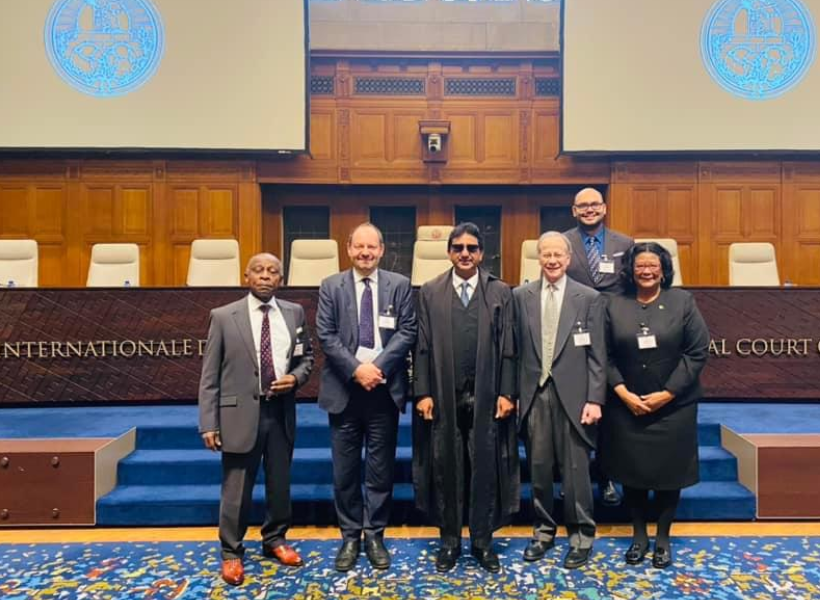President of the International Court of Justice (ICJ), Judge Joan E. Donoghue this morning rejected Venezuela’s preliminary objections to the border case with Guyana. Two of the objections pertained to the admissibility of the case before the court. Venezuela also argued that the United Kingdom should not be a party to the case but that was struck down.
Venezuela had objected to the admissibility of Guyana’s application for a final settlement of the border controversy to the ICJ. However, Guyana had submitted that the UK, its former colonizers, is not indispensable, due to the fact that it has no legal interests that would affect a judgment on the validity of the Arbitral Award of 3 October 1899.
The court drew reference to the 1966 Geneva Agreement to make its ruling. It outlined that the then British Guiana became independent on May 26, 1966; three months after the agreement was acknowledged. “Guyana and Venezuela had the sole role in the settlement of the dispute through the mechanism of the mixed commission,” the ruling outlined.
“The court concludes that the Geneva agreement specifies particular roles for Guyana and Venezuela, and that its provisions including Article eight, do not provide a role for the United Kingdom in choosing or in participating in the means of settlement of the dispute. pursuant to Article four,” the court ruled.
The border controversy between Guyana and Venezuela is hinged on Venezuela’s contention that the 1899 Arbitrary Award that determined the boundary line between the then British Guiana and Venezuela, is null and void. The subsequent 1966 Geneva Agreement was in response to Venezuela’s 1962 contention, outlining the tactics used to resolve the territorial controversy.
Despite assiduous efforts made to strengthen mediation through the Good Offices Process, very little progress was made towards agreeing. Consequentially, in 2018, Guyana applied to initiate proceedings against Venezuela with the International Court of Justice (ICJ).
Guyana is being represented by Attorney-General and Minister of Legal Affairs, Anil Nandlall, S.C.; Minister of Parliamentary Affairs and Governance, Gail Teixeira; Agent of Guyana in the case concerning the Arbitral Award of October 3, 1899, Carl Greenidge; Co-Agent and Permanent Secretary of the Ministry of Foreign Affairs and International Cooperation , Ambassador Elisabeth Harper; Director of the Frontiers Department of the Ministry of Foreign Affairs and International Cooperation, Donnette Streete; and Advisor to the Leader of the Opposition on Frontier matters, Ambassador Ronald Austin.













